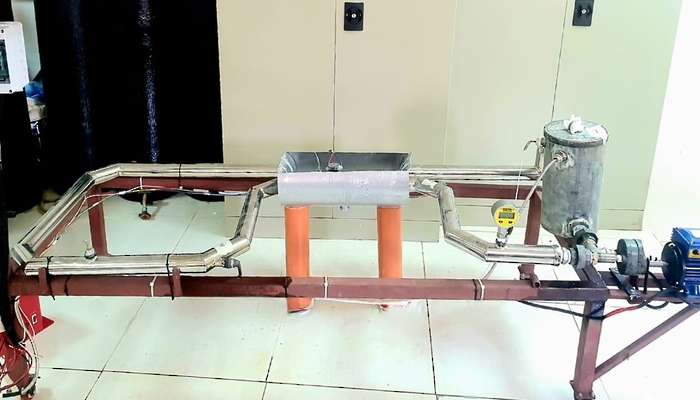A project aimed at reducing wax deposits in oil pipelines has been recognized as a winning initiative in the Upgrade Programme overseen by the Ministry of Higher Education, Research, and Innovation in Muscat. Led by Al Waleed bin Yousef Al Maharbi, the project seeks to address the issue of wax buildup in crude oil pipelines, ultimately reducing carbon emissions as a result. The innovative approach focuses on the use of ultrasound waves within the oil and gas sectors to develop an environmentally-friendly method for eliminating wax deposits in pipelines.
Wax deposits in pipelines present a significant challenge for oil companies, impacting maintenance costs and transportation efficiency. Al Maharbi highlighted the use of ultrasound waves as a key solution to this issue. Operating at high frequencies, these waves generate vibrations that create bubbles within the crude oil. When these bubbles burst, they crush the heavy wax particles into smaller pieces, preventing the formation of wax deposits in the pipeline. By utilizing this technology, the project aims to reduce reliance on chemicals and electric heating, ultimately cutting costs and increasing productivity for oil companies.
The innovative use of ultrasound waves in the project offers a promising solution to the longstanding issue of wax buildup in oil pipelines. By harnessing the power of high-frequency vibrations, the project effectively breaks down wax particles in the crude oil, preventing them from causing obstructions in the pipeline. This approach not only reduces the need for costly maintenance and chemical treatments but also contributes to a more sustainable and environmentally-friendly method of oil transportation.
In addition to addressing wax deposits in oil pipelines, the project also plays a vital role in reducing carbon emissions associated with oil transportation. By eliminating the need for chemical treatments and electric heating that contribute to greenhouse gas emissions, the project aligns with global efforts to combat climate change. Through the implementation of this innovative technology, oil companies can achieve a more sustainable and eco-friendly approach to pipeline maintenance, ultimately reducing their environmental impact and improving operational efficiency.
Furthermore, the utilization of ultrasound waves in the project demonstrates the potential for cutting-edge technologies to revolutionize traditional processes within the oil and gas industry. By leveraging advancements in ultrasound technology, the project showcases a new and effective method for addressing common challenges faced by oil companies. This innovative approach not only improves operational efficiency and cost-effectiveness but also paves the way for future advancements in sustainable oil transportation practices.
Overall, the recognition of the project in the Upgrade Programme highlights the value of innovation and research in addressing critical issues within the oil and gas sector. By developing a sustainable and environmentally-friendly solution to wax deposits in oil pipelines, the project sets a precedent for future advancements in pipeline maintenance and carbon emission reduction. Through the continued collaboration between industry leaders and researchers, the potential for transformative technologies such as ultrasound waves to drive positive change within the oil and gas industry remains significant, offering promising opportunities for increased efficiency and sustainability in oil transportation processes.





















